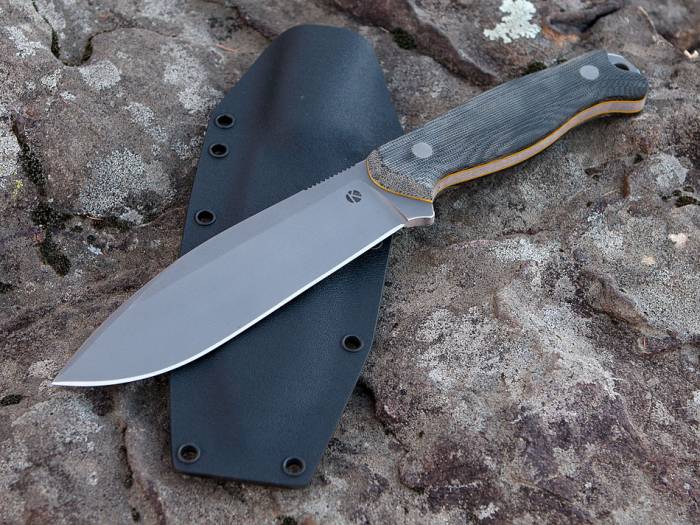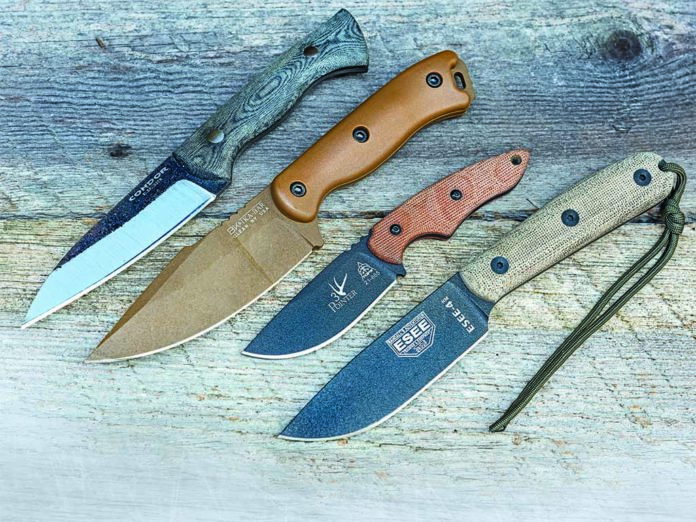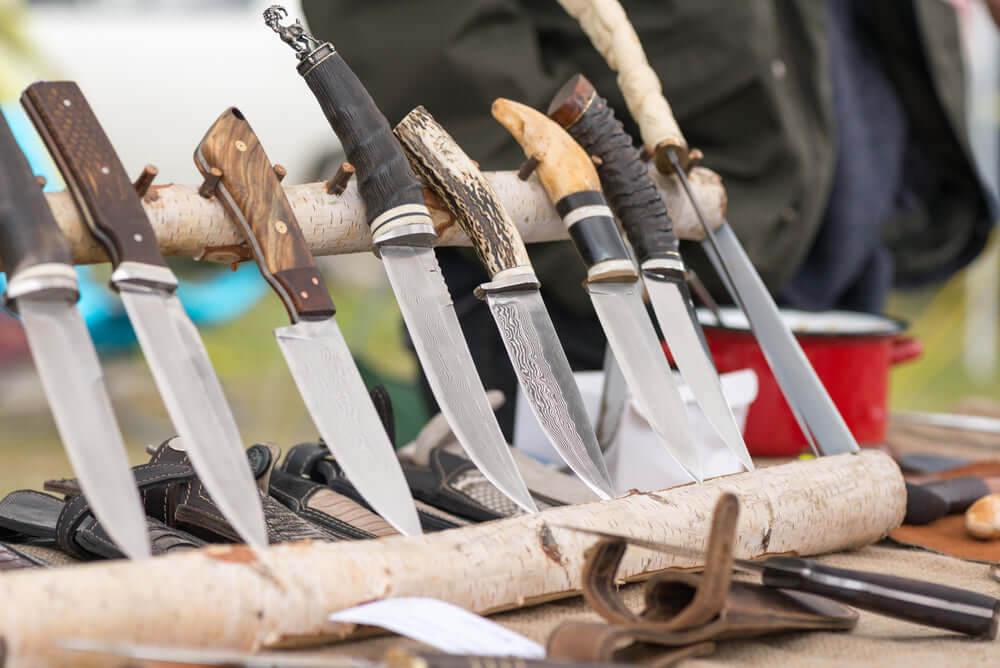Knife performance and durability depend on the steel used to make them. Steel choice affects knife sharpness, edge retention, corrosion resistance, and overall quality.
This detailed article will answer the question, “What is the best steel for a knife?” and discuss the aspects to consider when choosing a steel. We’ll examine popular and obscure possibilities. Let’s explore knife steels!
What is Knife Steel?
Knife steel makes knife blades. It determines the knife’s performance, durability, and quality. Iron, carbon, and other components are carefully mixed to create knife steels.
Steel Selection’s Importance
Knife performance depends on steel choice. The correct steel improves knife sharpness, edge retention, toughness, and corrosion resistance. Thus, choosing a knife requires knowledge of steel properties and use.
The Importance of Steel Selection
Several properties affect knife steel performance. Examine these properties:
Hardness
Steel’s hardness refers to its indentation resistance. HRC is the Rockwell hardness scale. High hardness makes the blade harder but brittle and harder to sharpen.
Toughness
Steel’s toughness is its capacity to withstand force without breaking. Heavy-duty knives need it. Knife performance requires hardness and toughness balance.
Corrosion Resistance
When exposed to moisture or acids, steel resists rust and other deterioration. Stainless steel is ideal for blades used in moist or humid conditions because it resists corrosion.
Edge Retention
Edge retention is a knife’s ability to stay sharp. High-edge-retention steels need less sharpening. Knives used for sustained cutting or slicing need this feature.
Common Knife Steels

Stainless Steel
Knives made of corrosion-resistant stainless steel are popular. Its minimum 10.5% chromium coating prevents rust and discoloration. Stainless steel knives are versatile and low-maintenance.
Carbon Steel
Carbon steel has high toughness and edge retention. It outperforms stainless steel because it has more carbon. Carbon steel rusts easily and needs regular maintenance. Carbon steel’s patina attracts many admirers.
Syria Steel
Damascus steel is beautiful and historic. It is a method of layering and folding different steels. The blade is unique and performs well. Collectors and aficionados value Damascus steel knives.
High-End Knife Steels

S30V Steel
S30V stainless steel has superior edge retention and corrosion resistance. Its vanadium content makes Crucible Industries’ product wear-resistant. Outdoor lovers and professionals love S30V knives.
VG10 Steel
High-quality Japanese kitchen knives use VG10 steel. Its fine-grained nature makes it sharp and edge-retaining. Chefs and home cooks like VG10 steel because it resists corrosion.
M390 Steel
Powder metallurgy stainless steel M390 has excellent performance. It’s durable, corrosion-resistant, and edge-retaining. Custom and high-end folding knives use M390 steel.
Specialized Knife Steels

D2 Steel
D2 tool steel is prized for its hardness and wear resistance. Industrial and luxury knives use it. D2 steel retains edge but needs frequent maintenance to prevent corrosion.
154CM Steel
154CM stainless steel is used to make robust, corrosion-resistant blades. It balances edge retention and sharpenability. Outdoor and tactical users like 154CM knives.
CPM-S110V Steel
Crucible Industries created premium stainless steel CPM-S110V. It has excellent edge retention and wear resistance. It is harder to sharpen than other steels. Professionals prefer CPM-S110V knives for uncompromising performance.
ZDP-189 Steel
High-performance powdered metallurgy stainless steel ZDP-189. Its toughness and edge retention surpass most steels. Collectors who value cutting performance like this steel in high-end folding knives.
ELMAX Steel
High-end powdered metallurgy stainless steel ELMAX is strong, edge-retaining, and corrosion-resistant. Knife enthusiasts praise its durability and sharpness. Hunters and outdoorsmen like ELMAX knives.
CTS-XHP Steel
CTS-XHP stainless steel is well-known for its versatility. It is versatile due to its hardness, toughness, and corrosion resistance. Knife lovers love CTS-XHP steel in high-quality folding knives.
Factors to Consider
Consider these variables while choosing a knife’s steel:
Intended Use
Consider the knife’s purpose. Will it be carried, used outdoors, or cooked with? Steel may need corrosion resistance or edge retention for different tasks.
Maintenance Needs
Some steels need additional upkeep. Stainless steel is corrosion-resistant and easier to maintain than carbon steel. To avoid rust and maximise performance, clean, lubricate, and store your knife periodically.
Budget
Budget matters too. High-performance steels cost more. Explore possibilities within your budget. You can find a good steel at a reasonable price.
Common Questions
Survival knife steel—what’s best?
A survival knife’s steel should be strong, corrosion-resistant, and edge-retaining. D2, 1095, and CPM-S35VN are popular survival knife steels due to their endurance and toughness.
Sharpen stainless steel knives?
Sharpen stainless steel knives. Sharpening stainless steel blades requires the correct tools and techniques.
Chef’s knife steel—what’s best?
Chef’s knives need strong, edge-retaining stainless steel. High-quality chef’s knives use steels like VG10, S30V, or X50CrMoV15 because they stay sharp.
Damascus steel—worth the hype?
Knife lovers love Damascus steel for its history and aesthetics. Damascus steel, a premium material, performs differently depending on type and construction.
To assure Damascus steel knife quality and functionality, choose a reputed producer.
Conclusion
Knife performance and lifetime depend on choosing the right steel. You can choose a product that meets your needs by evaluating intended usage, upkeep, and budget.
Each type of steel—stainless, carbon, or high-end—has its own pros and downsides. Maintain your knife regardless of steel type for best performance and lifetime.
In conclusion, “What is the best steel for a knife?” is unanswerable. Your needs determine it. This handbook clarifies knife steel qualities and features. Happy knife hunting and may you find the best steel for cutting!
